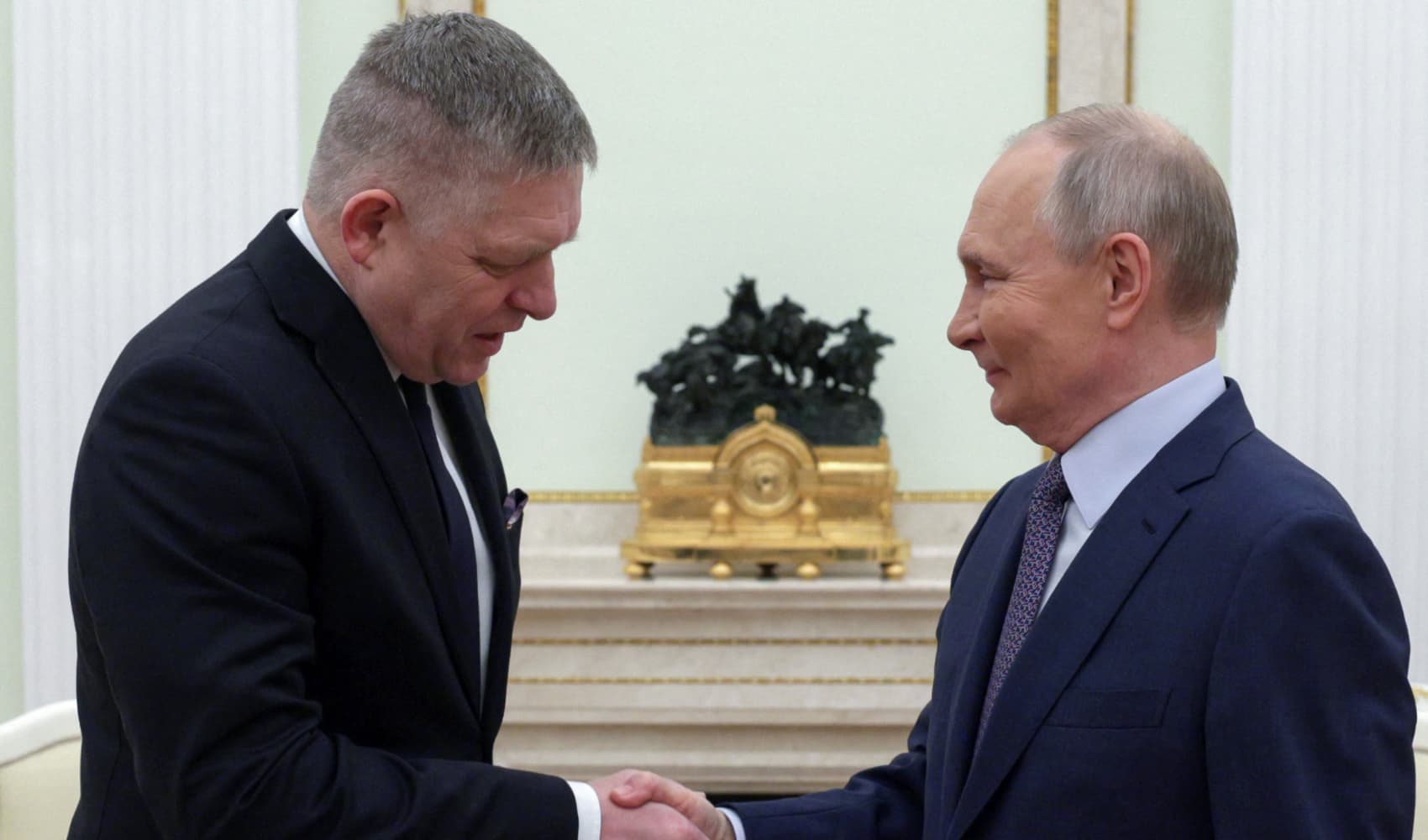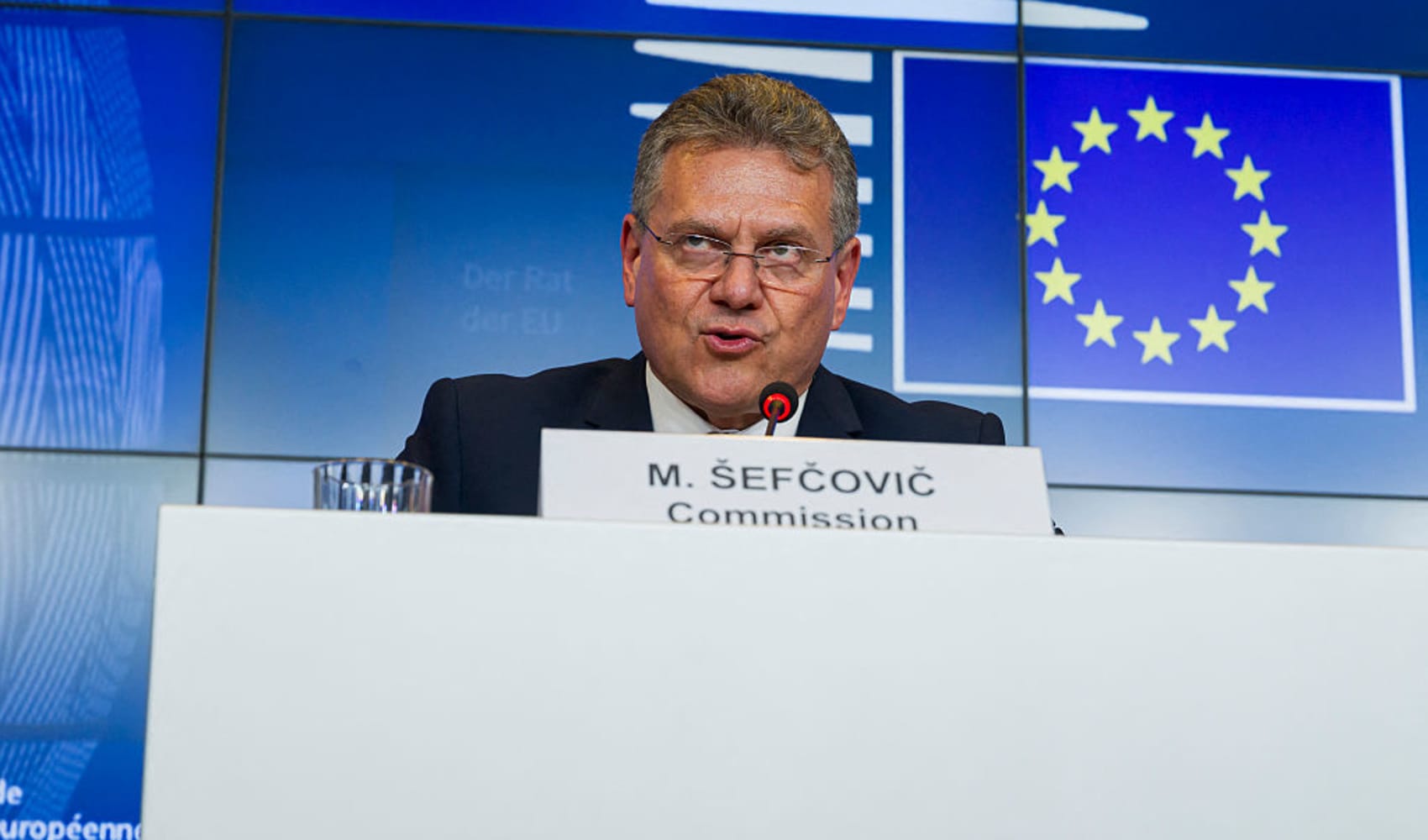EU Russian Gas Ban: Victory or Economic Suicide?
EU's Russian Gas Ban: Economic Suicide or Energy Independence?
Introduction: A Continent Divided Over Russian Gas
The European Union is at a crossroads. The bold ambition to completely cut ties with Russian gas by 2027, announced by the European Commission, has sparked fierce debate and exposed deep divisions within the bloc. Is it a necessary step towards energy independence, a crippling blow to some member states, or a bit of both?
Imagine trying to quit sugar cold turkey after years of addiction. It’s going to be painful, disruptive, and potentially lead to some very grumpy people. That’s the challenge facing the EU as it attempts to wean itself off Russian gas, a resource that has fueled its economies for decades. But unlike a sugar addiction, this decision has profound geopolitical implications and could reshape the future of Europe.
The European Commission's Bold Plan
The European Commission has laid out a clear roadmap: eliminate Russian gas, nuclear energy, and liquefied natural gas (LNG) imports by the end of 2027. The goal? To ensure the EU's "full energy independence from Russia," a strategic move driven by the conflict in Ukraine and the need to reduce reliance on a supplier seen as increasingly unreliable.
The Rationale Behind the Decision
The rationale is simple: Russia has used its energy resources as a political weapon, threatening supplies and manipulating prices. Diversifying energy sources, investing in renewables, and increasing energy efficiency are seen as crucial steps to secure Europe's energy future and prevent future blackmail.
Eastern Europe's Resistance: "Economic Suicide"?
However, not everyone is on board with this plan. Several Eastern European nations, heavily reliant on Russian gas, are sounding the alarm. They argue that an abrupt cutoff would be "economic suicide" and a severe threat to the region's energy security.
Voices of Dissent: Hungary and Beyond
Hungary, led by Prime Minister Viktor Orban, has been particularly vocal in its opposition. Other countries, including Slovakia and the Czech Republic, have also expressed concerns about the feasibility and economic impact of a complete ban on Russian gas.
Why the Resistance? Examining the Dependencies
These countries have historically relied on Russian pipelines for their gas supply and lack the infrastructure to quickly switch to alternative sources. Diversifying their energy mix requires significant investment and time, resources they may not readily have.
The Economic Implications: A Balancing Act
The economic consequences of ending Russian gas imports are complex and far-reaching. While the EU aims for energy independence, the transition period could be turbulent, with potential price spikes and supply disruptions.
Potential Price Spikes and Inflation
Reduced supply and increased demand for alternative sources could drive up energy prices, fueling inflation and impacting businesses and consumers alike. This could trigger economic slowdowns and social unrest.
Impact on Industries and Households
Energy-intensive industries, such as manufacturing and chemicals, are particularly vulnerable. Households could also face higher energy bills, straining their budgets and potentially leading to energy poverty.
The Search for Alternatives: Where Will the Energy Come From?
To replace Russian gas, the EU is exploring various alternatives, including increased imports of LNG from the United States and other countries, expanding renewable energy production, and developing new gas pipelines from alternative sources.
LNG: A Viable Solution?
LNG offers a flexible and readily available alternative, but it comes with its own challenges. Building new LNG terminals and pipelines takes time and money, and the environmental impact of LNG production and transportation needs to be carefully considered.
Renewables: The Long-Term Vision
Investing in renewable energy sources, such as solar and wind power, is crucial for long-term energy security and climate goals. However, renewables are intermittent and require significant investments in storage and grid infrastructure.
Geopolitical Ramifications: Shifting Alliances
The EU's decision to end Russian gas imports has significant geopolitical implications, potentially reshaping alliances and creating new power dynamics in the energy market.
Russia's Response: Finding New Markets
Russia is already seeking new markets for its gas, particularly in Asia. This could lead to a closer alignment between Russia and China, further complicating the geopolitical landscape.
The US Role: A Key Partner?
The United States is playing a key role in supplying LNG to Europe, strengthening transatlantic ties. However, relying too heavily on a single supplier could create new vulnerabilities.
The Path Forward: Navigating a Complex Transition
The transition away from Russian gas will be a complex and challenging process, requiring careful planning, significant investment, and a united front from EU member states. Compromise and cooperation will be essential to avoid economic hardship and maintain energy security.
The Need for Solidarity and Cooperation
Solidarity and cooperation among EU member states are crucial. Wealthier countries may need to provide financial assistance to help Eastern European nations diversify their energy sources and adapt to the new reality.
A Call for Innovation and Efficiency
Investing in innovation and energy efficiency is essential. Developing new technologies and reducing energy consumption can help ease the transition and create a more sustainable energy system.
Conclusion: A Future Without Russian Gas – A Risky But Necessary Gamble?
The EU's plan to end Russian gas imports is a bold and ambitious undertaking with far-reaching consequences. While some member states view it as "economic suicide," others see it as a necessary step towards energy independence and a more secure future. Whether it succeeds depends on careful planning, significant investment, and a strong sense of solidarity. It’s a gamble, to be sure, but perhaps a gamble worth taking to break free from a reliance that has made Europe vulnerable.
Frequently Asked Questions
- Why is the EU trying to end Russian gas imports?
The EU aims to reduce its reliance on Russia as an energy supplier, particularly after Russia's invasion of Ukraine. This is seen as a way to increase energy security and prevent Russia from using its energy resources as a political weapon.
- Which countries are most affected by this decision?
Eastern European countries like Hungary, Slovakia, and the Czech Republic are heavily reliant on Russian gas and face the biggest challenges in transitioning to alternative sources.
- What are the alternative energy sources the EU is exploring?
The EU is looking to increase imports of Liquefied Natural Gas (LNG), invest in renewable energy sources like solar and wind power, and develop new gas pipelines from other suppliers such as Norway and Algeria.
- How will ending Russian gas imports affect consumers?
Consumers could face higher energy prices as demand for alternative sources increases. This could lead to increased inflation and strain household budgets, especially for those in energy poverty.
- What are the long-term benefits of ending reliance on Russian gas?
In the long term, reducing reliance on Russian gas can enhance energy security, promote the development of sustainable energy sources, and reduce the EU's vulnerability to political pressure from Russia.


